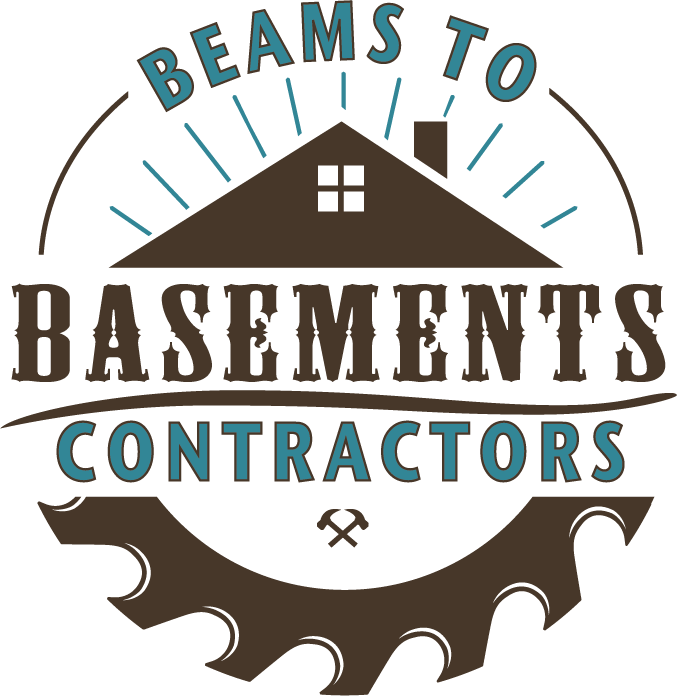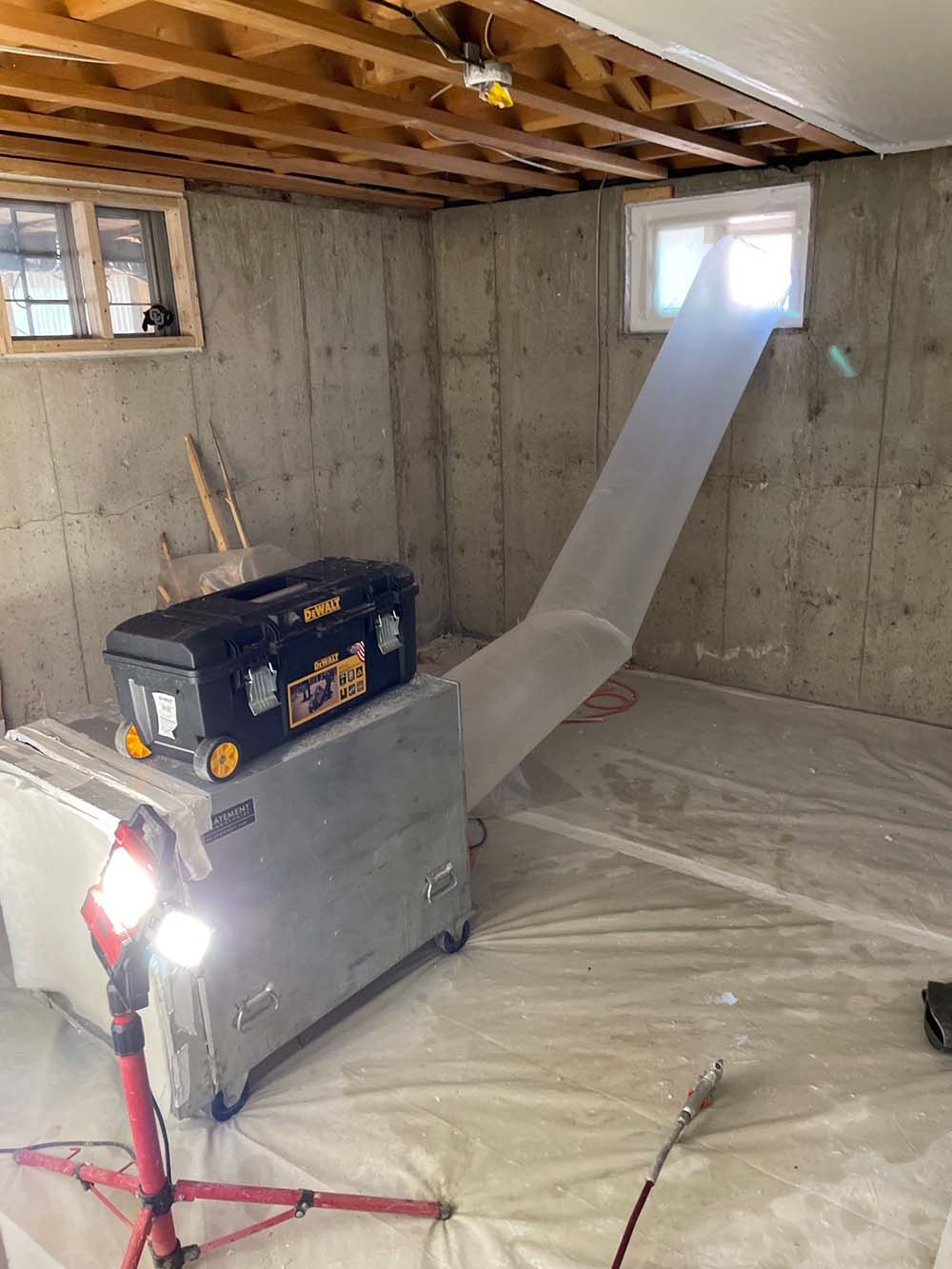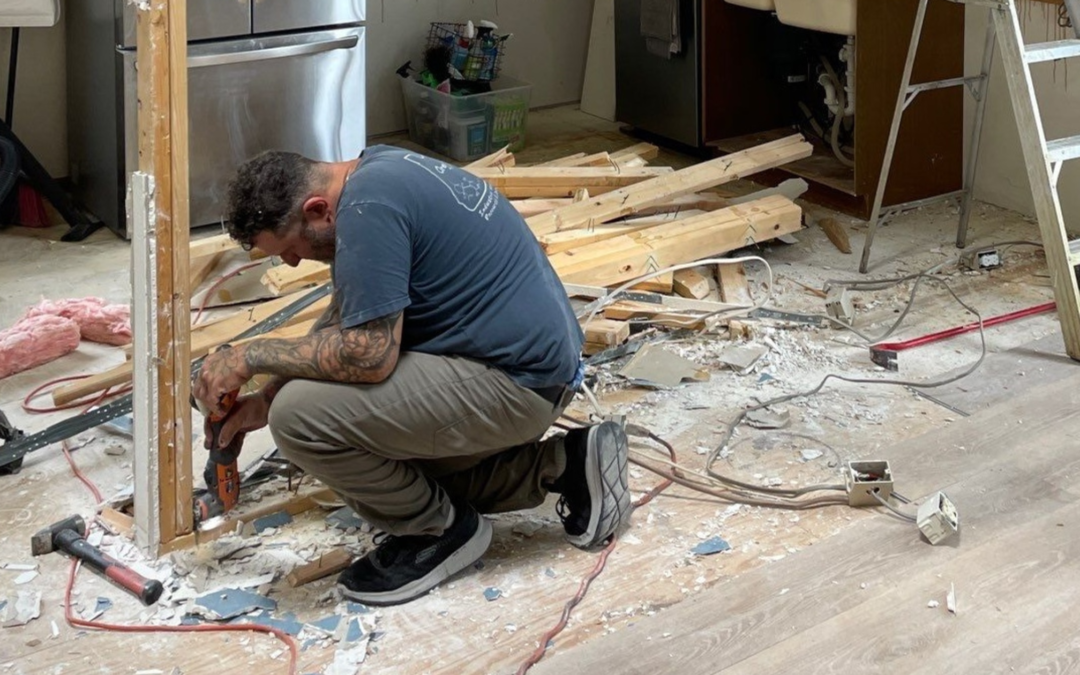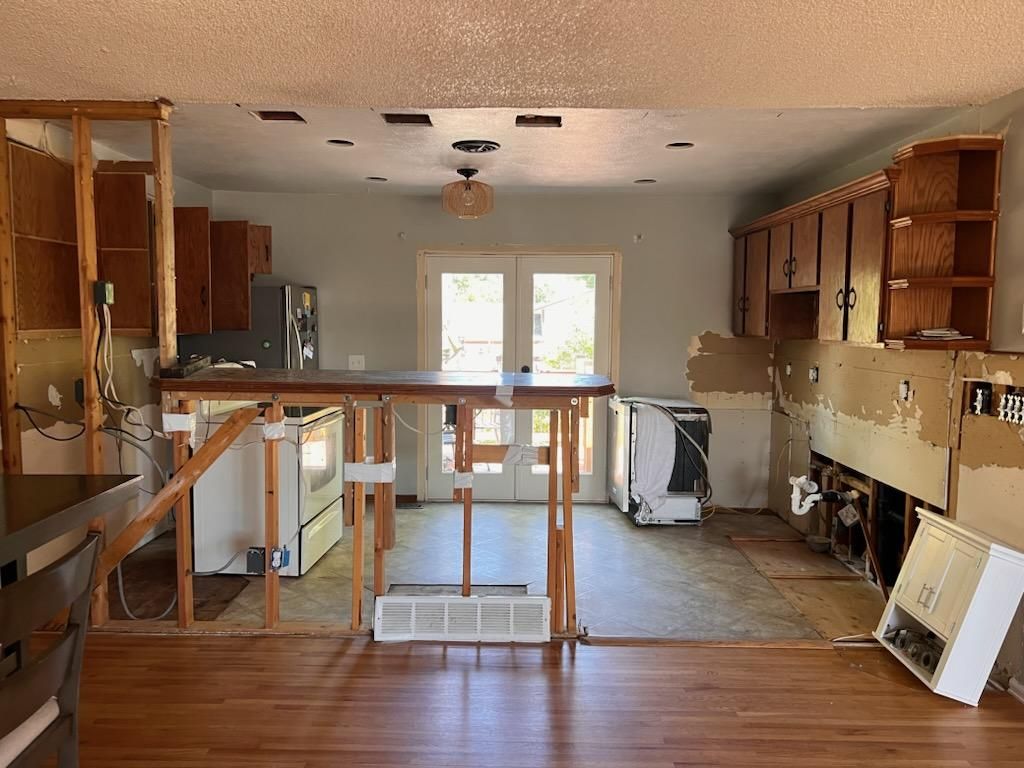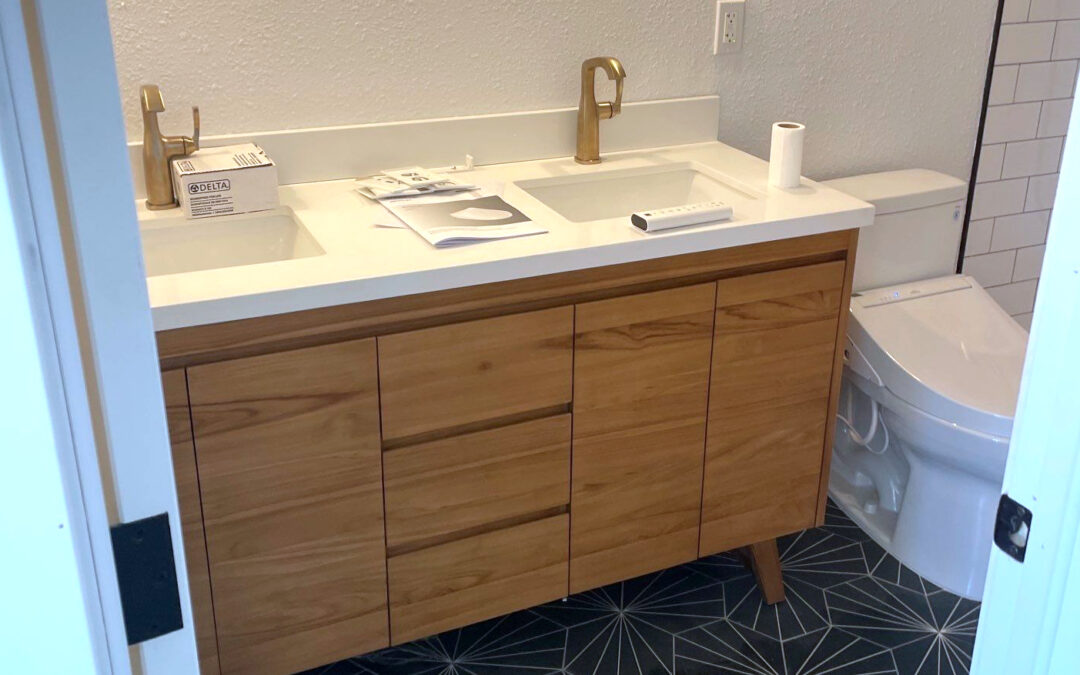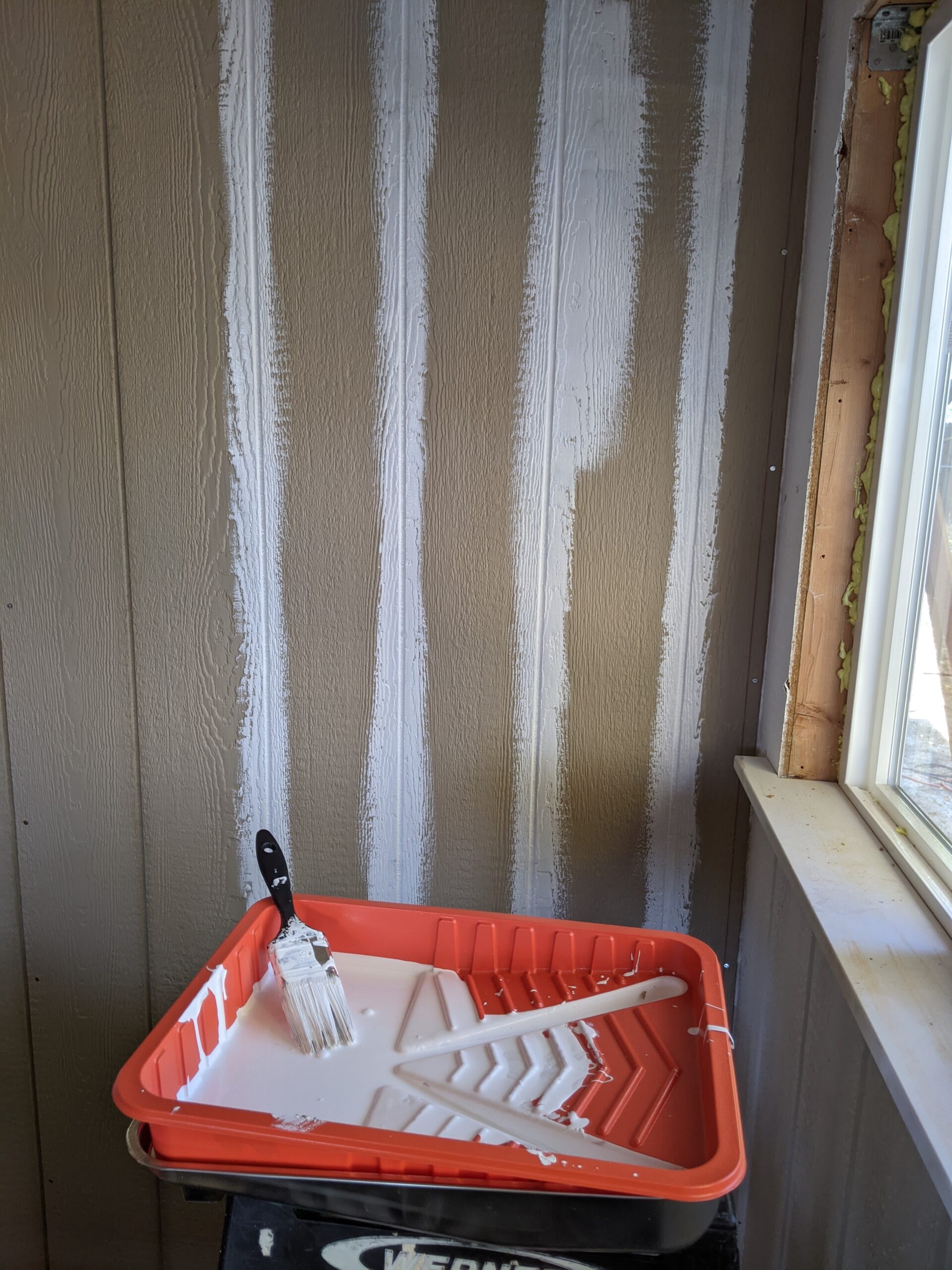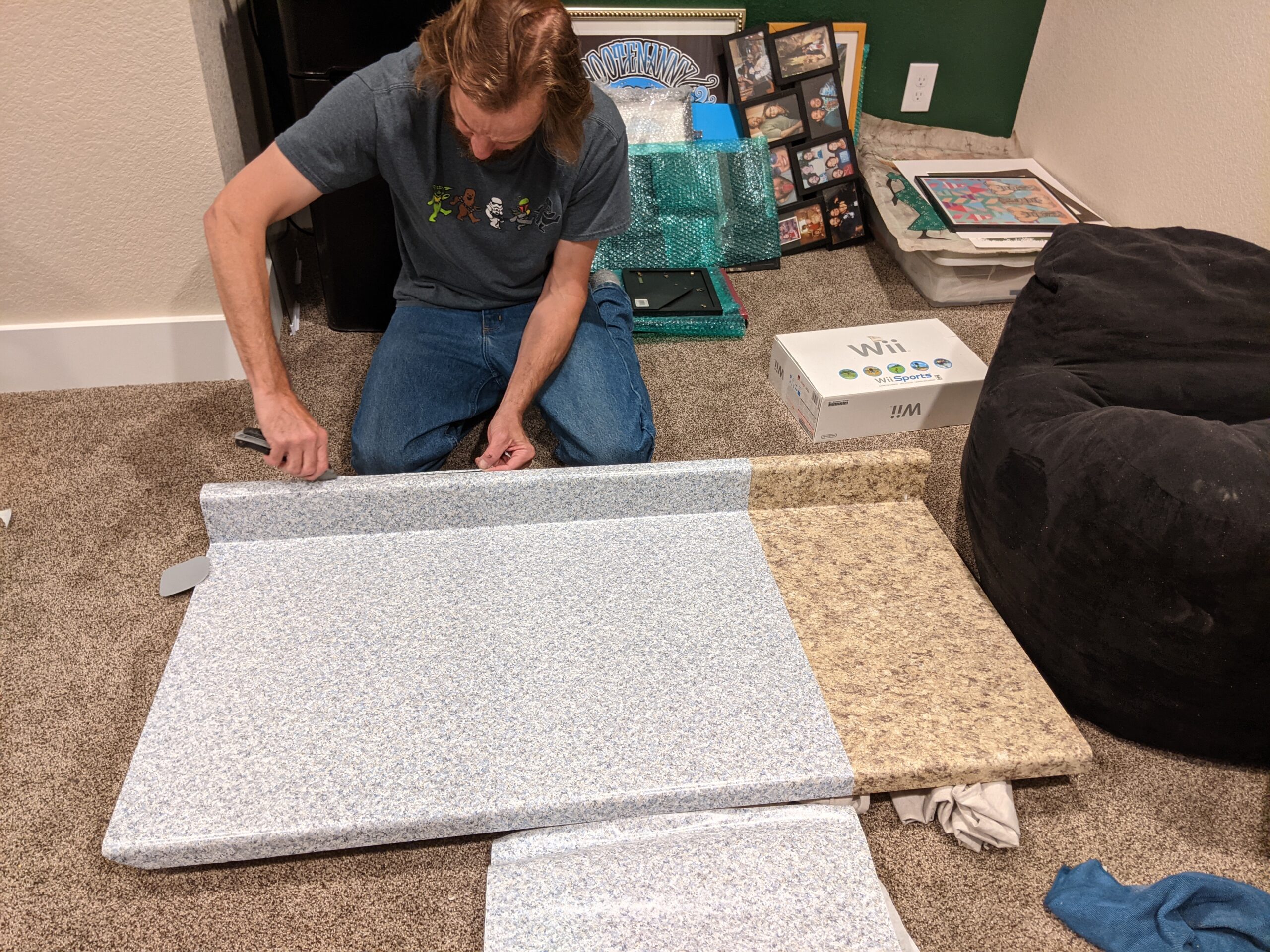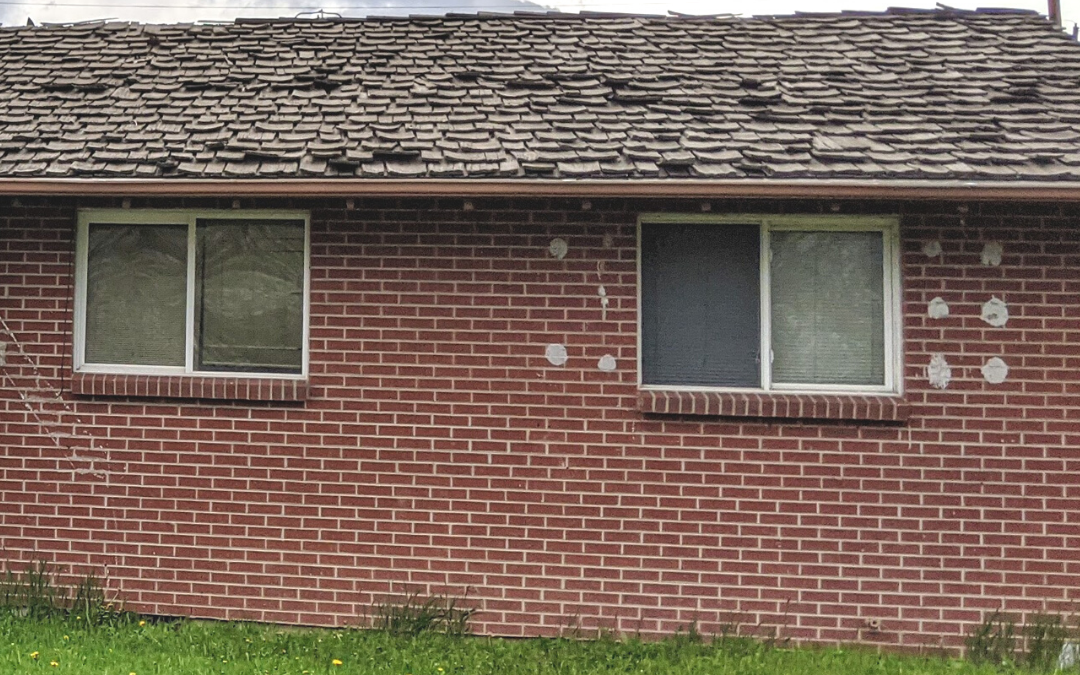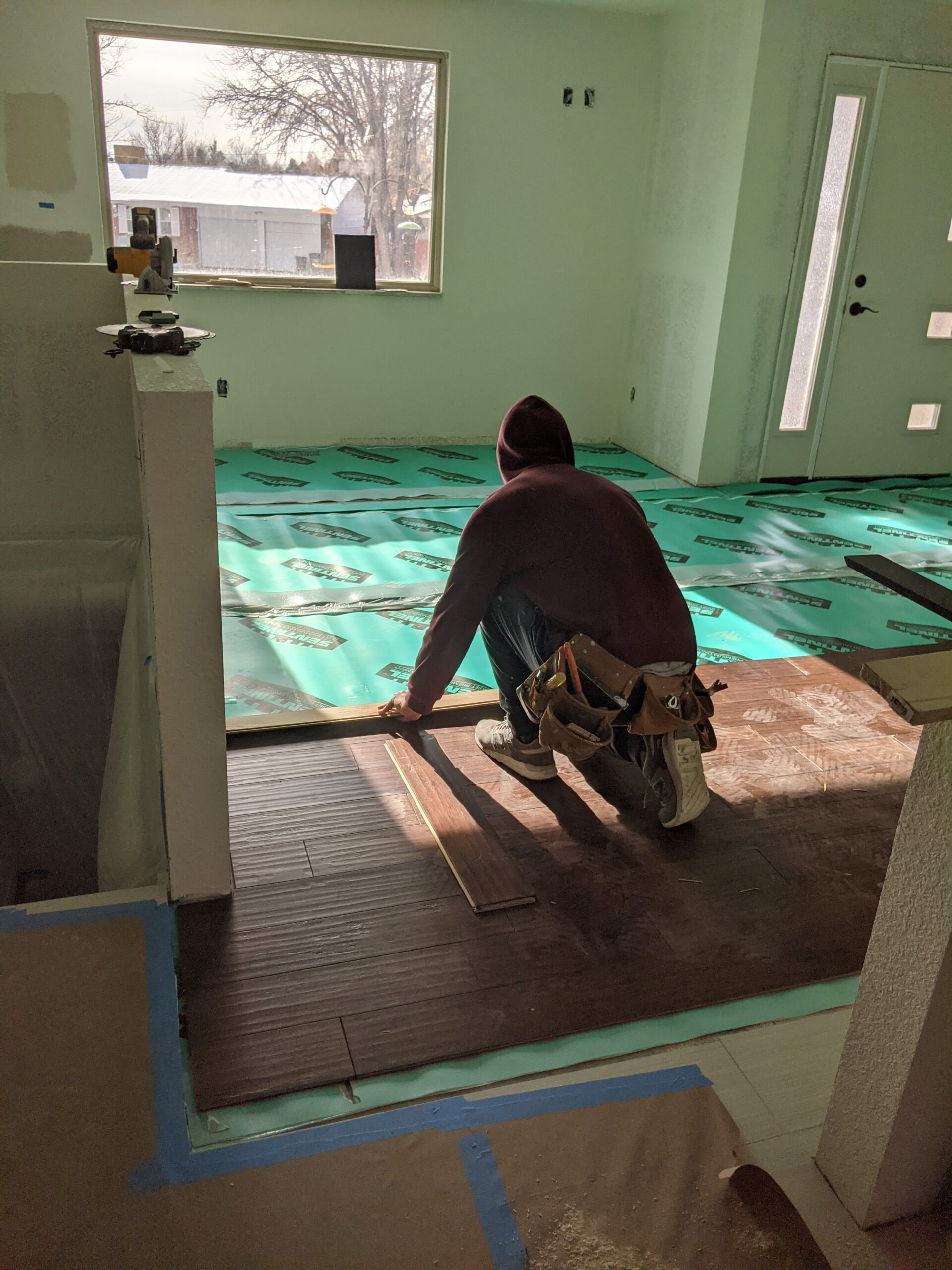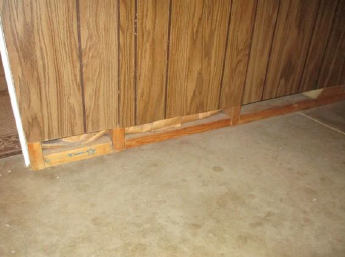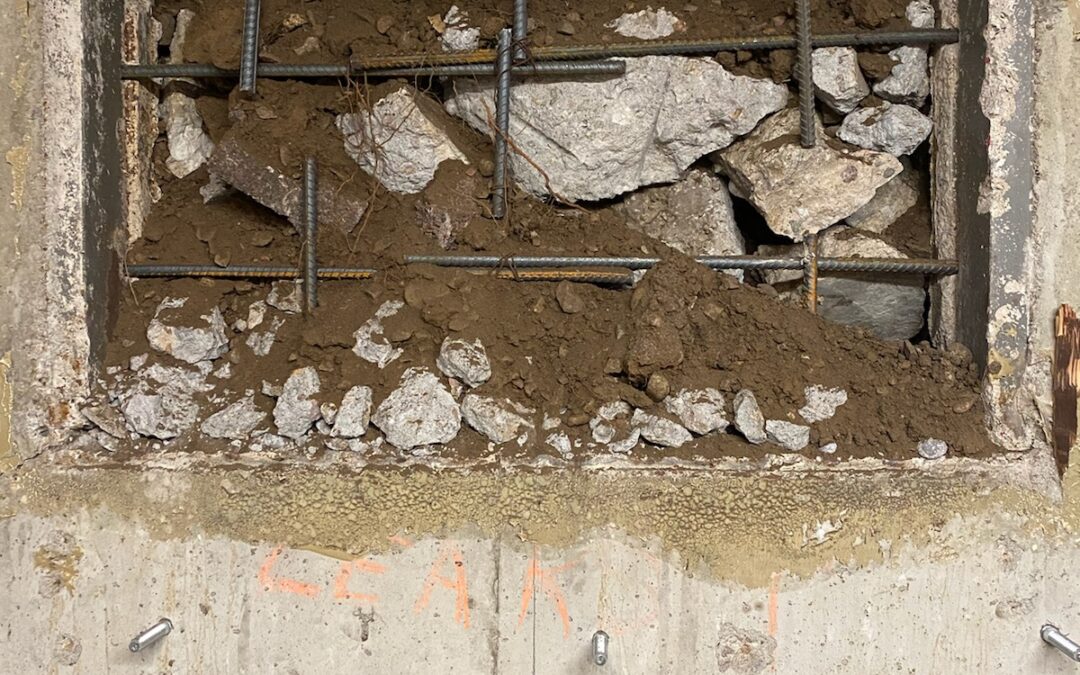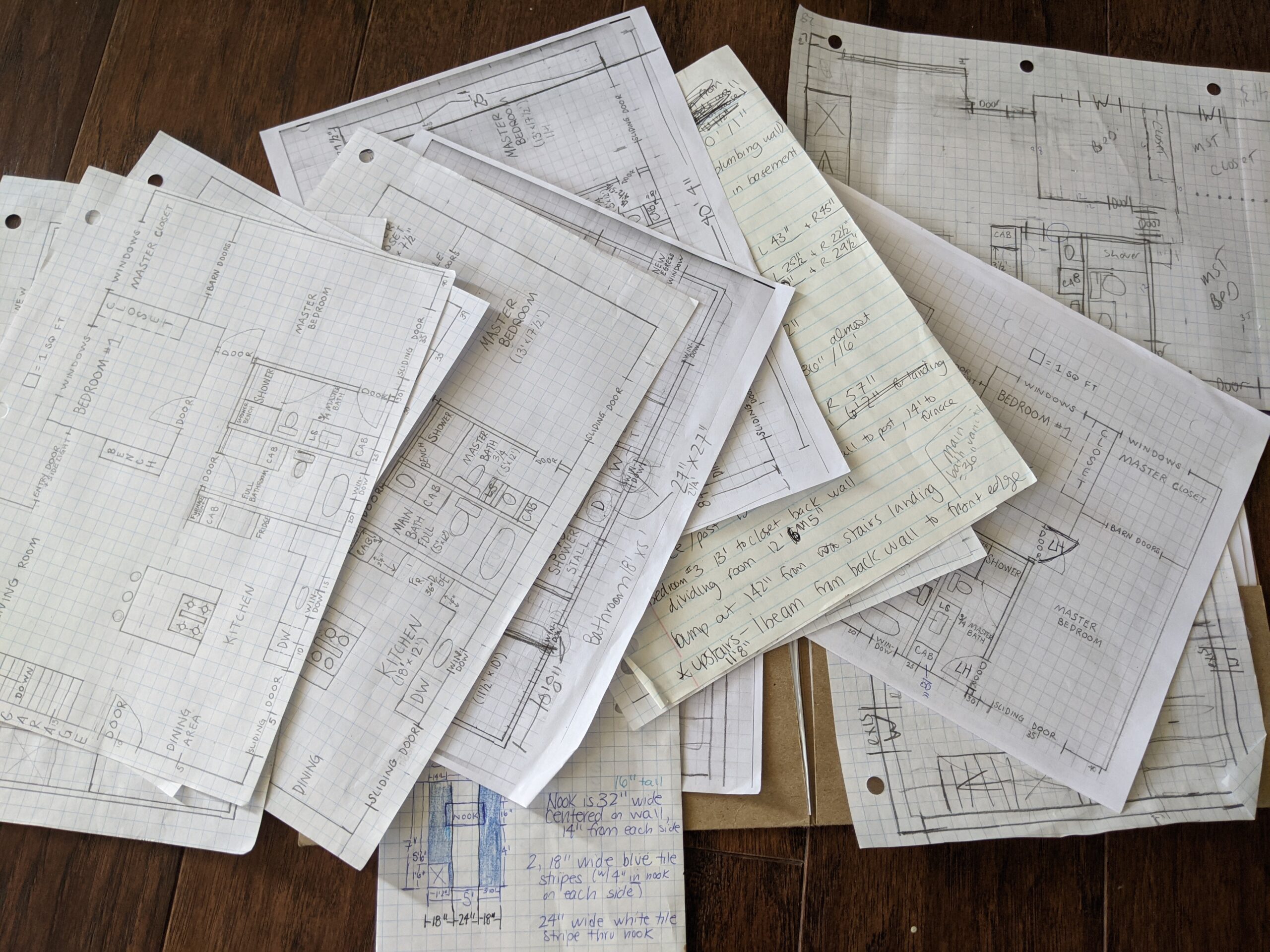Story #9
We are not doing all of the renovations to our first home ourselves, just as we may not do all of the parts of customers’ home improvement projects. When the demo is done and Josh has framed the new walls, the next stage of our remodel is Work Done by Others. We’ve worked with the plumbing, electrical, and heating/ventilation/air condition HVAC specialists — Jake Jacoby of Progressive Mechanical, Anthony Cordova of Christopher Anthony Designs and Development, and Carlos Bustamante of Ruby Hill Comfort, respectively, all to be featured in future stories — on many other projects, so we trust their work on our house. But we still need to hire for several other tasks. We will gather estimates and interview tradespeople in search of the magical trio of quality, price, and timing.
Since we started Beams to Basements Contractors last year, we’ve talked with a couple hundred homeowners about possible renovation projects. And now, as the ones who are hiring other companies for our first home, we have a unique perspective on this important relationship between contractor and owner. We know that selecting contractors can be a scary part of your home improvement project and a big part of the budget. Honestly, I’m feeling anxious about this part at our first home.
Here are some tips to help you hire the right contractors for your project.
1. Think about these 2 things before you contact a contractor.
- Scope of work: what you want done to your house. You don’t need a detailed plan for the first conversation, but you should have a basic idea of your project. For example, a bathroom project may involve replacing only the flooring, updating all of the existing pieces (flooring, vanity, cabinets, toilet, shower doors, faucets, & light fixtures), or adding a new bathroom. Also, consider whether you’ll do any of the work, like demolition, design, or buying the materials.
- Budget: what you want to spend on this project. Again, you just need to know generally how much you can afford. Do you want to add a bathroom in your basement for $4,500? What if it costs $20,000? If you don’t know how much projects like yours should cost in your area, you can use HomeAdvisor’s True Cost Guide to calculate the average, typical range, and low- and high-end of project costs based on your zip code. (We don’t get paid to say that.)
2. Not all home improvement companies are the same. There are many different business models, so pay attention to what services and expertise each one offers to find the best match. When you think about the scope of work (see point #1), consider whether you only need to hire construction labor or if you also want help with other project elements, like layout or permit coordination. Firms may concentrate on specific project types, like egress windows or kitchen remodels, while others can complete anything. Some have interior designers, architects/engineers, and specialists as part of their team. At our company, Josh is a master carpenter, so projects like framing, cabinets, doors, and windows are his expertise. As a small, family business, we don’t have contractor discounts, so I encourage customers to shop for the materials themselves to suit their tastes and budgets.
3. Even if your home improvement project is as simple as replacing a door, it’s best to get estimates from more than one company — and compare more than just the prices. Make sure that they can complete the project within your timeline and to your quality expectations. Clear communication is the most important trait to ensure an easy relationship throughout the project, especially if you have any surprises (which isn’t uncommon in funky, old Denver homes).
4. Get recommendations. You can decide how intensely you want to check a company’s references based on the size of your project, but at least search online for valid, negative reviews or news stories. We’ve meticulously built up our verified customer reviews on Angie’s List because we know that our happy customer’s words are the best way to prove that you can trust us to finish your project to our top-notch quality standards, too. In addition to checking their reviews, you can ask for examples of their work. For larger projects, like an addition or full-house remodel, it’s appropriate to ask to speak to past customers, too.
5. Once you’ve hired a company who demonstrates that they know how to do your project, don’t micromanage them about every step in your project, like how they’ll fit the replacement door slab to the existing hinges. Believe that you’ve screened the contractor and picked the best one for your project. Then, trust that they will do the job correctly.
6. Expect to pay a deposit, typically 50% when the company is buying materials, and maybe for time calculating estimates. Many companies are small, family businesses like ours that don’t have large credit accounts to carry the charges until projects are completed. Plus, this demonstrates your commitment to hire this company because both parties have skin in the project.
7. Before the work starts, you need a clear, specific plan. You should be able to talk with the contractor about the budget and timeline to stay on the same page throughout your project. Tell them your deadline, such as the date your new renters are moving in. Ask how long the work will take, ½ day or 3 months; they should tell you as soon as prices or schedules change. Also discuss instructions to prepare the space before your project starts, such as who will move all the furniture so your floors can be refinished or how long you’ll be without a functioning kitchen.
8. Finally, while projects may have different payment schedules, it’s typical to have a balance owed upon completion. Wait to give the final payment until you are satisfied that your project was completed as promised, within reason. The best way to wrap up is to walk through your finished project with the contractor and talk about all your concerns immediately.
We hope that these tips guide you to pick the right contractor for your project, even if it isn’t us. There is plenty of work to go around, so we’re not worried about losing a job. It’s more important that the customer and contractor are on the same page from the start to ensure a smooth project.
PODCAST RECOMMENDATION
If you want to hear advice about working with contractors from other people, listen to the highly successful real estate investors on the BiggerPockets Real Estate Investing Podcast Episode # 399: Solving the Investor/Contractor Relationship. Here are some nuggets that I found valuable:
- It’s probably obvious that the big box stores pick which products they carry based on the biggest profit margin for them, not on the best quality for their customer. In fact, often the models sold exclusively at those stores have lower caliber parts, like plastic in the mass-produced faucets, that aren’t as durable. Jump to 35:33 in the podcast to hear them explain the real cost of low-cost materials. They advise when to spend more for better quality so your house looks nicer because “generally speaking, materials are less than 25% of the whole project cost.”
- At about the 1-hour mark they also talk about the difference in finish quality you can expect from specialists and other contractors.
- If you’re interested in doing some projects yourself, listen to their tips at 91:30 about the best DIY skills for new owners to learn for the highest return on their investment.
- After reading this whole story, do you still need more info about how to find a good contractor? These experts give their input at 98 minutes into this excellent podcast episode.
